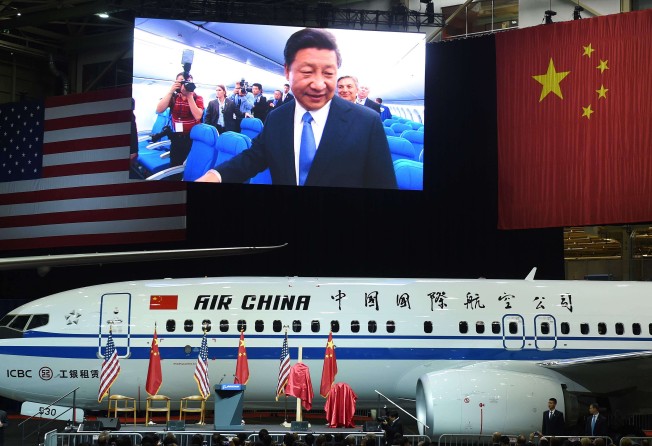
Under Donald Trump, the US will accept China’s rise – as long as it doesn’t challenge the status quo
James Woolsey says while America remains committed to its role as a holder of the balance of power in Asia, it supports China’s legitimate efforts to seek a bigger say on global affairs

The United States is still, by far, the leading military force in the world. We are the only country that can project power in volumes sufficient to deter enemies, decide wars and pacify entire regions. Part of the American public exhibits today what could be called “world policeman fatigue”, yet in order to reinforce our allies’ trust in our commitment to security and to reinstate our primacy in the conventional and digital battle spaces, we need to reverse the harmful defence budget cuts signed into law by the Obama administration. We must also redraw our red lines and redefine our vital interests.
History shows that our interventions have not been self-serving but typically emerged in the face of inhumane oppression, stark violations of international law or in response to humanitarian catastrophes. Our so-called interventionism in the wars against Imperial Japan, Nazi Germany or Baathist Iraq is the reason why countries like Kuwait, Australia, France, Poland and even China are sovereign countries today. We may, perhaps, be more scrupulous in our decision-making on where and how we get involved but we will not become isolationist.

The US sees itself as the holder of the balance of power in Asia and is likely to remain determined to protect its allies against Chinese overreach. The experience of the last century teaches us that unchecked expansionism and aggression only invites more bad behaviour. We will not repeat this mistake. China should realise that our reflexes in Asia are not driven by territorial ambitions. We conquered the Philippines, burned Japan and bombed to rubble part of Cambodia, Korea and Vietnam. but we healed our relations with all of those societies and have strong moral responsibilities to them.
We understand China’s desire to reform global institutions that reflects its increasing footprint in the global economy and global security architecture. It takes time to change international institutions but we are seeing that change does come. The recent inclusion of the renminbi in the International Monetary Fund’s basket of reserve currencies is one example. The hosting of the G20 meeting in Hangzhou (杭州) can be viewed as another recognition of China’s leadership role. It is widely accepted in Washington today that the Obama administration’s opposition to the formation of the Asian Infrastructure Investment Bank was a strategic mistake and I hope that the next administration’s response to the Belt and Road initiative will be much warmer.

Emerging economies like China that benefit much from the global marketplace will have to claim an expanded role in areas like peacekeeping, counterterrorism, humanitarian efforts, disaster relief and anti-piracy. We hear that, as the largest contributor of troops to peacekeeping, China is angling to be put in charge of the UN’s Department of Peacekeeping Operations. This will give China a much bigger say on how to best utilise the UN’s limited resources in the service of peacekeeping. But it also sends an important message that China is much more willing to live up to its size on matters related to peace than in fighting wars. But peacekeeping is easier than peacemaking.
I hope that the next administration’s response to the Belt and Road initiative will be much warmer
Our ideological differences should also be better managed. America’s commitment to the spread of freedom is unwavering. Yet, as we improve our understanding of the complexities of the Chinese social and political system, it becomes increasingly apparent that challenging the current system is a risky endeavour. We may not like it but we don’t necessarily have to do something about it. I can therefore see the emergence of a grand bargain in which the US accepts China’s political and social structure and commits not to disrupt it in any way in exchange for China’s commitment not to challenge the status quo in Asia. It may not be a spoken agreement but a tacit understanding that guides the relations in the years to come.
James Woolsey Jnr is a senior adviser of US President-elect Donald Trump on national security, defence and intelligence